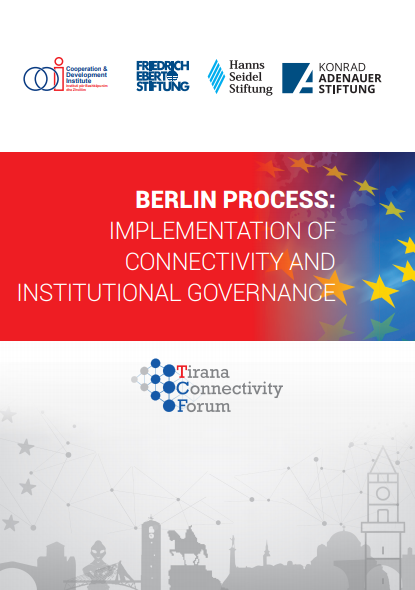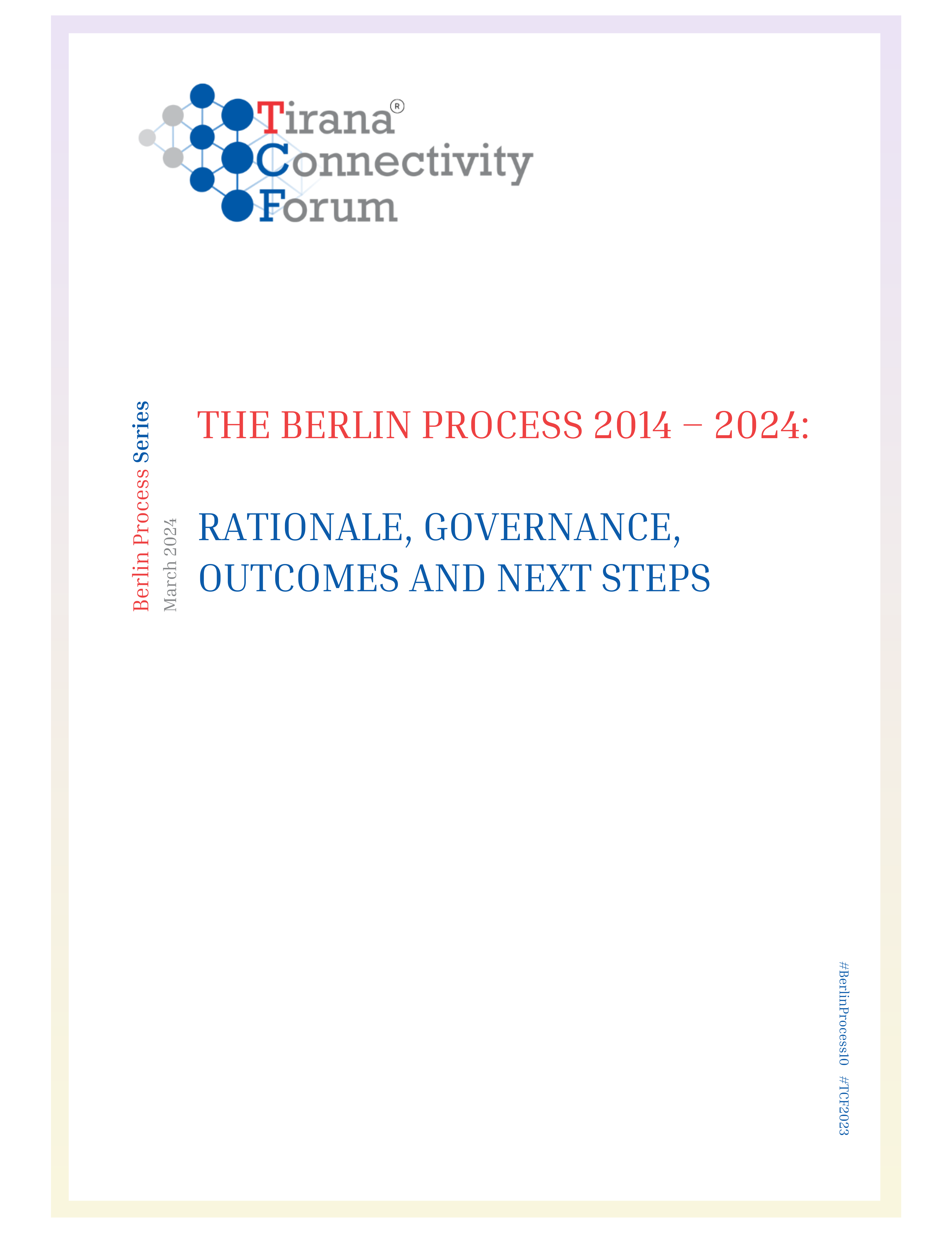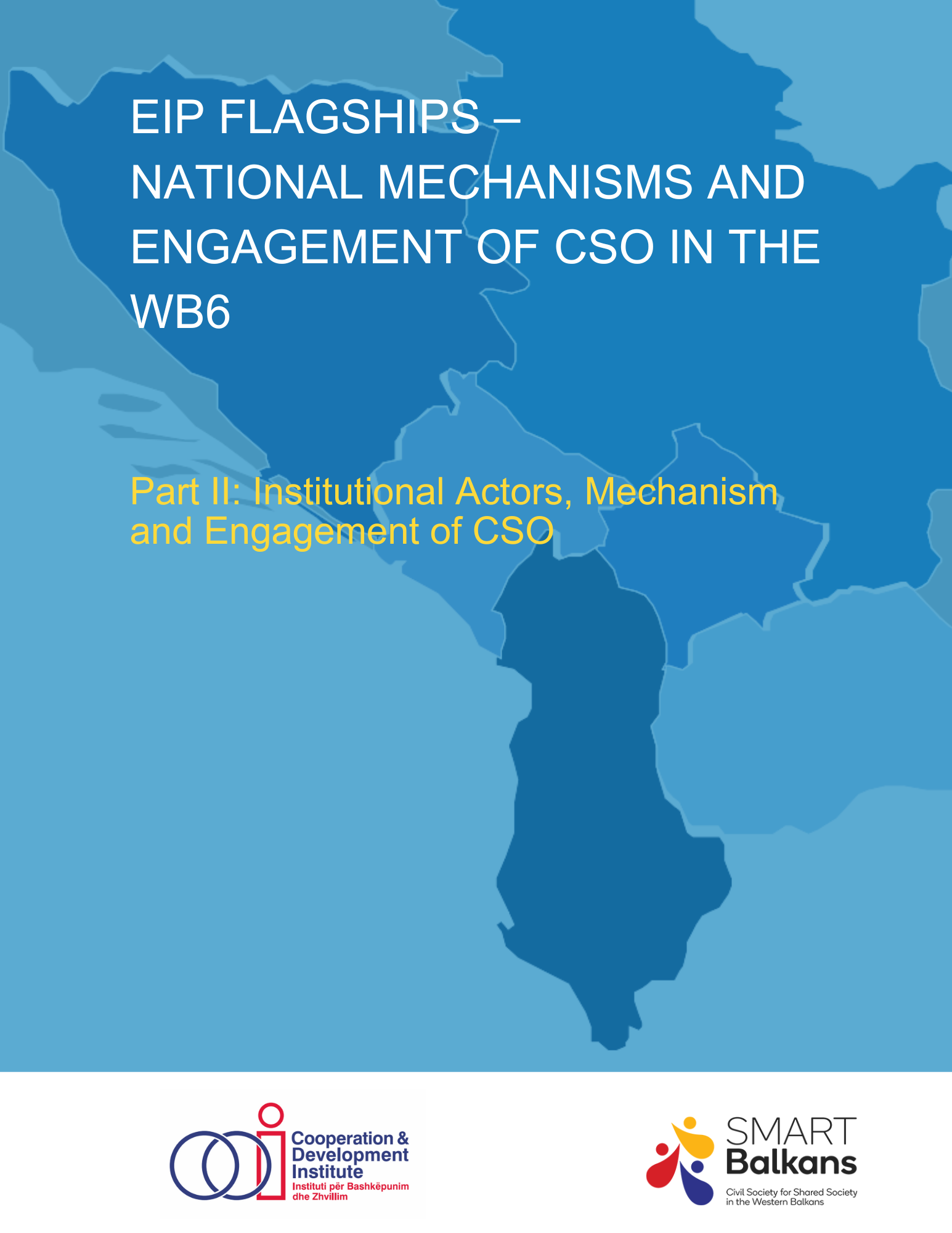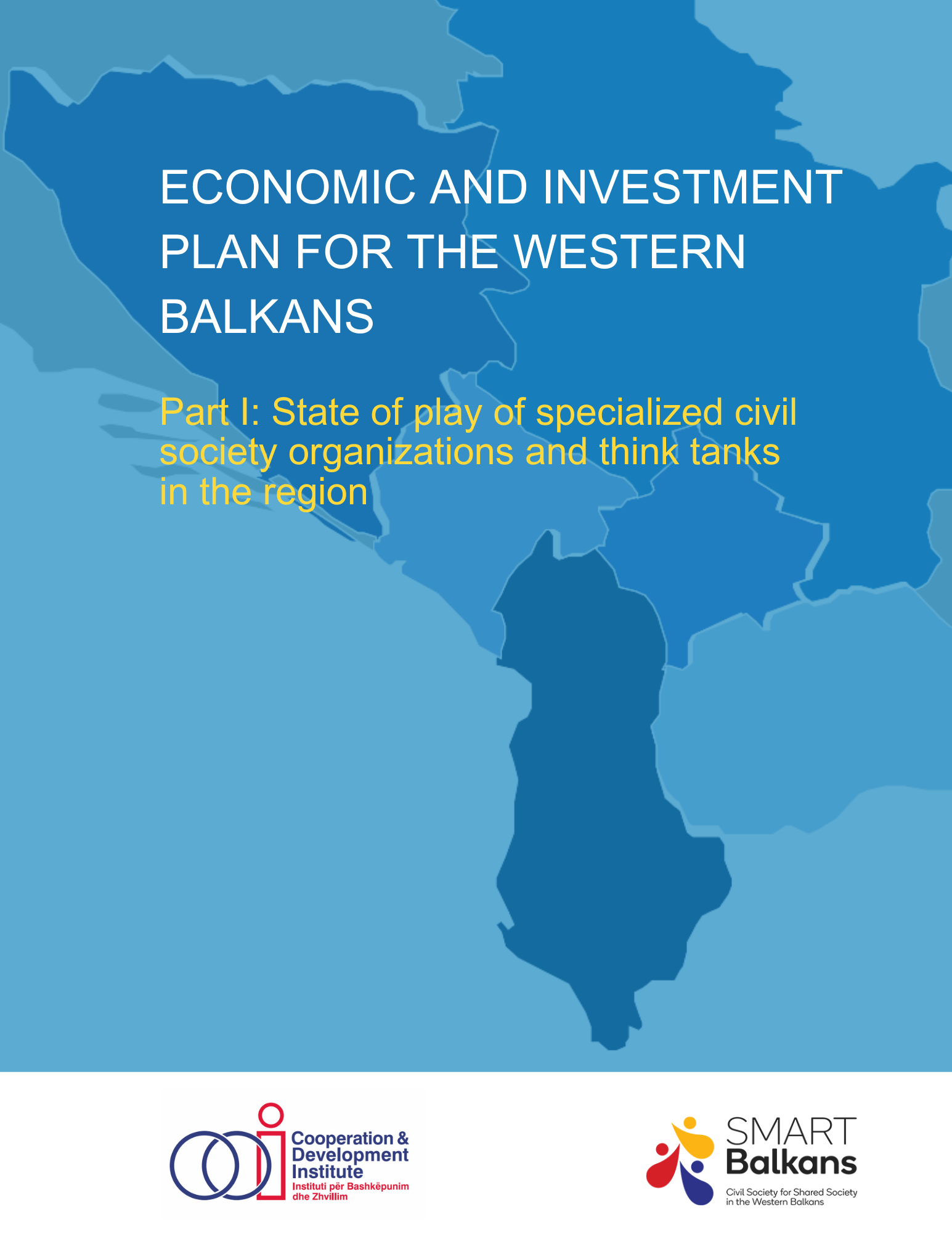
Youth and migration: a common retrospective on the migration phenomenon
April 3, 2019
Workshop “Energy Transition and Challenges for a Free and Integrated Electricity Market: The Case of Albania”.
April 9, 2019The current report benefits from a 5-year hindsight, and adds three novelties to the growing number of research on the Berlin Process. While including in our focus the implementation phase of the connectivity agenda projects, we have expanded the scope and also extended the timeline of analysis.
The structure of the report follows this pattern: from spatial connectivity to full integration in one polity. It starts with the explanation of the advantages that a larger scope and longer timeline brings while studying the efficiency of a multilayered connectivity and evaluating its impact. The people-to-people (P2P) connectivity complements the sector analysis. It will push the borders of sector approach to assess the interaction of higher mobility of people with the surrounding context. The interaction of markets globalization with social fractures at national level will be particularly addressed.
The last chapter puts the WB6 connectivity in the EU context and its surrounding uncertainty. EU enlargement to WB6 is affected by the same phenomena that EU integration is facing. But the big difference is that WB6 institutions are still young and under consolidation, when compared with the centenary liberal democratic institutions of Western Europe.
Further on the document has been enriched with conclusions of the 4th Tirana Connectivity Forum of November 2018 (TCF18). Different citations as well as longer contributions during the TCF18 in form of boxes have been inserted throughout the analysis.




